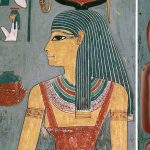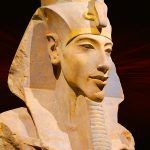The Finest Machine

The symphony of Bao’s life was not played on strings, but on steel. His workshop, a humble tin-roofed shelter behind their small house, was his concert hall. The screech of a rusted bolt, the rhythmic clang of a hammer, and the low purr of a newly tuned engine were his music. He never owned a fancy suit. His hands, permanently stained with the dark veins of oil, were maps of a thousand repairs. His clothes always carried the sharp, familiar scent of gasoline, a perfume of hard labor.

For years, he worked under the blazing sun and the dim glow of a single hanging bulb, fixing motorbikes for the entire neighborhood. He was more than a mechanic; he was a magician who could breathe life back into dying machines. But this magic came at a cost. Every dollar he earned was not for himself. It was a seed planted for his son’s future. Every dream he once had of opening a bigger shop or buying a new truck, he quietly packed away, so his boy, Minh, could chase his own.

Minh grew up amidst the clutter of spare parts and the smell of grease. While his father’s world was one of wrenches and pistons, Minh’s was filled with books. Bao would watch his son sitting on an overturned crate, lost in the pages of a textbook, his young face illuminated by the workshop’s light. In those moments, Bao knew his sacrifice was right. He was building a bridge for his son, a bridge made of sweat and saved dollars, leading away from this dusty yard to a world of opportunity.

The day Minh left for the university in the city was the quietest day the workshop had ever known. Bao pressed a thick, worn envelope of cash into his son’s hands—the culmination of years of relentless work. “Study hard,” was all he could manage to say, his voice thick with unspoken pride and a touch of sorrow.

Years passed. The boy grew into a man. Letters home became phone calls, and phone calls became brief messages as Minh’s life became busier. He studied hard, graduated with honors, and climbed the corporate ladder, becoming the kind of man his father always hoped he’d be—polished shoes, a crisp suit that fit perfectly, and a confident smile that spoke of success.
Then, one afternoon, a sleek, modern car, out of place among the dusty streets of the old town, pulled up to the workshop. Minh stepped out. He looked different, transformed by the city, yet his eyes were the same.

Bao stood frozen, wiping his oily hands on a rag. He saw his son’s expensive leather shoes tread on the same dusty ground where he had once played as a child. A wave of insecurity washed over him. He looked at his own worn-out sandals, his stained shirt. For a moment, he felt the immense distance between their two worlds.
But Minh didn’t hesitate. He walked straight into that familiar, cluttered yard, past the skeletons of old bikes and stacks of tires. He wrapped his arms around his father, ignoring the grease and grime, and held him tight. The scent of gasoline on his father’s shirt was the smell of his childhood, the smell of love.

He pulled back slightly, his eyes glistening. “You built bikes, Dad,” Minh said softly, his voice full of emotion. “But you also built me.”
In that instant, the weight of years of labor lifted from Bao’s shoulders. All the sweat, the aches, the sacrifices—they weren’t just for fixing machines. They were for forging a man. He looked at his son, this incredible person standing before him, and for the first time, the old mechanic didn’t feel poor or small. He felt like the wealthiest man on earth. He felt proud—because the best, most complex, and most beautiful thing he ever created wasn’t a machine with two wheels.

It was a man who remembered where he came from.











